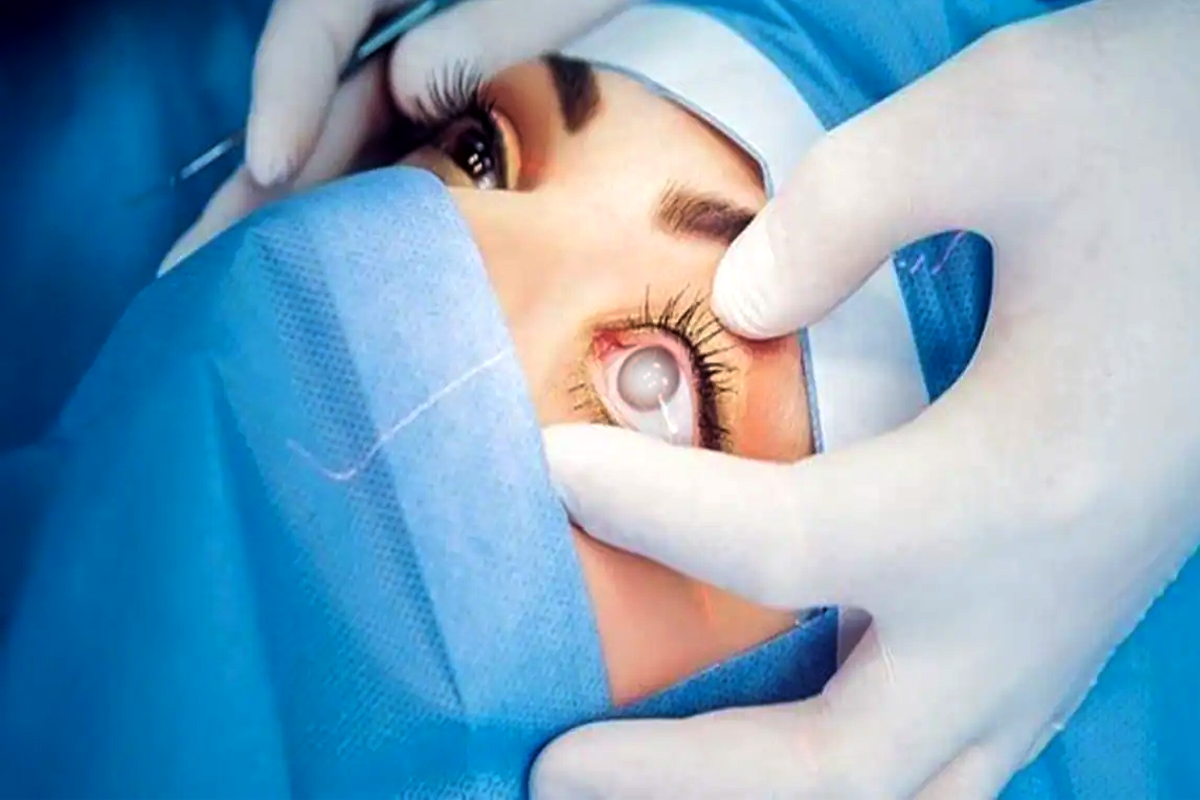Cataract Surgery FAQs – All You Need to Know Beforehand
Most cataracts are the result of normal aging process; therefore, we all get cataracts as we age, usually starting in early 40s. Cataract surgery, or the removal of the cloudy lens and implantation of a clear artificial lens, is the only definitive treatment for cataract.

What Is a Cataract?
A cataract is the clouding of our natural lens inside the eye that helps us focus light. A cataract scatters and prevents light from entering the eye properly, resulting in blurring and dimness of vision. In addition, color vision may be affected as cataracts progress. Depending on the types of cataracts, some may also cause glare problem in bright sunlight and at night.
What Causes a Cataract?
Most cataracts are the result of normal aging process; therefore, we all get cataracts as we age, usually starting in early 40s. Cataracts can also arise from injury to the eye or prolonged steroid use. Some systemic diseases, such as diabetes, can hasten the progression of cataract formation. Rarely, cataracts can be congenital due to faulty development of the eye.
What Can Be Done About Cataracts?
Most cataracts are the result of normal aging process; therefore, we all get cataracts as we age, usually starting in early 40s. Cataracts can also arise from injury to the eye or prolonged steroid use. Some systemic diseases, such as diabetes, can hasten the progression of cataract formation. Rarely, cataracts can be congenital due to faulty development of the eye.
Also Read: Health Coach is a Necessity Rather Than a Choice
When the impaired vision can no longer be correctable with glasses or contact lenses and starts to interfere with activities of daily living, such as driving, reading, hobbies, etc., then it would be time to consider cataract surgery. Cataract surgery, or the removal of the cloudy lens and implantation of a clear artificial lens, is the only definitive treatment for cataract.
Signup today and find a doctor near you
What to Expect In a Cataract Surgery?
Cataract surgery is the most commonly performed operation in the United States, with about 3 million cataract surgeries performed each year. Over 95% of patients are very satisfied with their vision after surgery.
Cataract surgery cannot return the eye to its youthful state. Its goal is to improve one’s best correctable distance and near vision with glasses or contact lenses, though through the use of new technology intraocular lenses or utilizing monovision strategy, dependence on distance and/or reading glasses may be reduced or eliminated.
Prior to surgery, a measurement to determine the appropriate power of intraocular lens must be done. Just before the surgery, eye drops are prescribed to prepare the eye for surgery. Same eyedrops are used for a few weeks after surgery to prevent infection and control usual postoperative inflammation. In most cases, cataract surgery is done under topical anesthesia using numbing eyedrops while the patient is under conscious sedation through the help of an anesthesiologist.
Also Read: Telemedicine and Remote Doctor Visit – the Way Forward
During surgery, a small incision is made in the cornea, the clear cover of the eye. A special instrument is used to break up and remove the old lens (cataract) with ultrasound energy. The natural membrane (capsule) that held the old lens is left in place, and the new intraocular lens is inserted and positioned in the capsule. The incision is usually closed with hydration, ie. no stitch. In most cases, the eye does not need to be patched, just covered with a clear protective eye shield. If desired, laser assisted-cataract surgery is also available.
What Are the Risks?
Cataract surgery is a delicate operation, and as with any surgery, there are associated risks which include but not limited to swelling of cornea, swelling of macular (center part of retina), retained pieces of cataract in the eye, dislocation of the cataract or artificial intraocular lens, retinal tear or detachment, infection, decreased or total loss of vision. Some of the problems are reversible without treatment, some are readily treatable with eyedrops while other may need additional surgeries.
See how mHospital provides best online doctor services
Although complications are not common and decreased or loss of vision after cataract surgery is extremely rare, risks will vary depending on the condition of cataracts and the presence of any other pre-existing eye diseases and/or conditions.
In general, the denser the cataracts the higher the risks of the surgery, hence the chance of complications. As a general rule, if vision is decreased because of cataracts to an extent that activities of daily living is impaired and can no longer be improved with a change in prescription glasses or contact lenses, cataract surgery should be considered as the benefits of the surgery outweigh the risks.
mHospital has multiple specialists who can assist you with diagnosis, recommendation, and surgery of cataract. You can see a doctor online or schedule an in-person visit.





